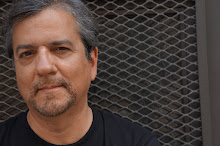Those who know me well know that "Waiting for Godot" is one of my favorite plays, and one which was seminal to my becoming a writer. Those who know me well also know how much I love the south of France and, in particular, the region of Languedoc-Roussillion.
Beckett joined the Resistance movement in Paris in September of 1941 and helped pass secret information to England about German military movements. When an infiltrator began uncovering the names of Resistance members in Beckett’s group, Beckett and his companion (later his wife) Suzanne had to flee Paris and travel into the South, where they eventually found refuge in the small village of Roussillon, near Avignon.
In the French version of "Waiting for Godot" (En Attendant Godot), this village is named as the place where Vladimir and Estragon picked grapes, an activity that Beckett and Suzanne actually engaged in. This has led some scholars to suggest that Vladimir and Estragon, at least in part, represent Beckett and Suzanne in flight from Paris to Roussillon.
"A country road. A tree. Evening."
Other scholars have suggested that the situation which Didi and Gogo find themselves in has its genesis in Beckett and Suzanne's waiting in an extremely dangerous form of exile for the war to end.
In Roussillon, Beckett earned food and shelter by doing strenuous manual labor for local farmers, eventually working for a small local Resistance group, and trying to keep his identity hidden from the Germans occupying outlying areas. After the war, Beckett was awarded two French medals, the Croix de Guerre and the Medaille de la Reconnaissance, for his contributions to the war effort.
Monday, January 4, 2010
Subscribe to:
Post Comments (Atom)


No comments:
Post a Comment